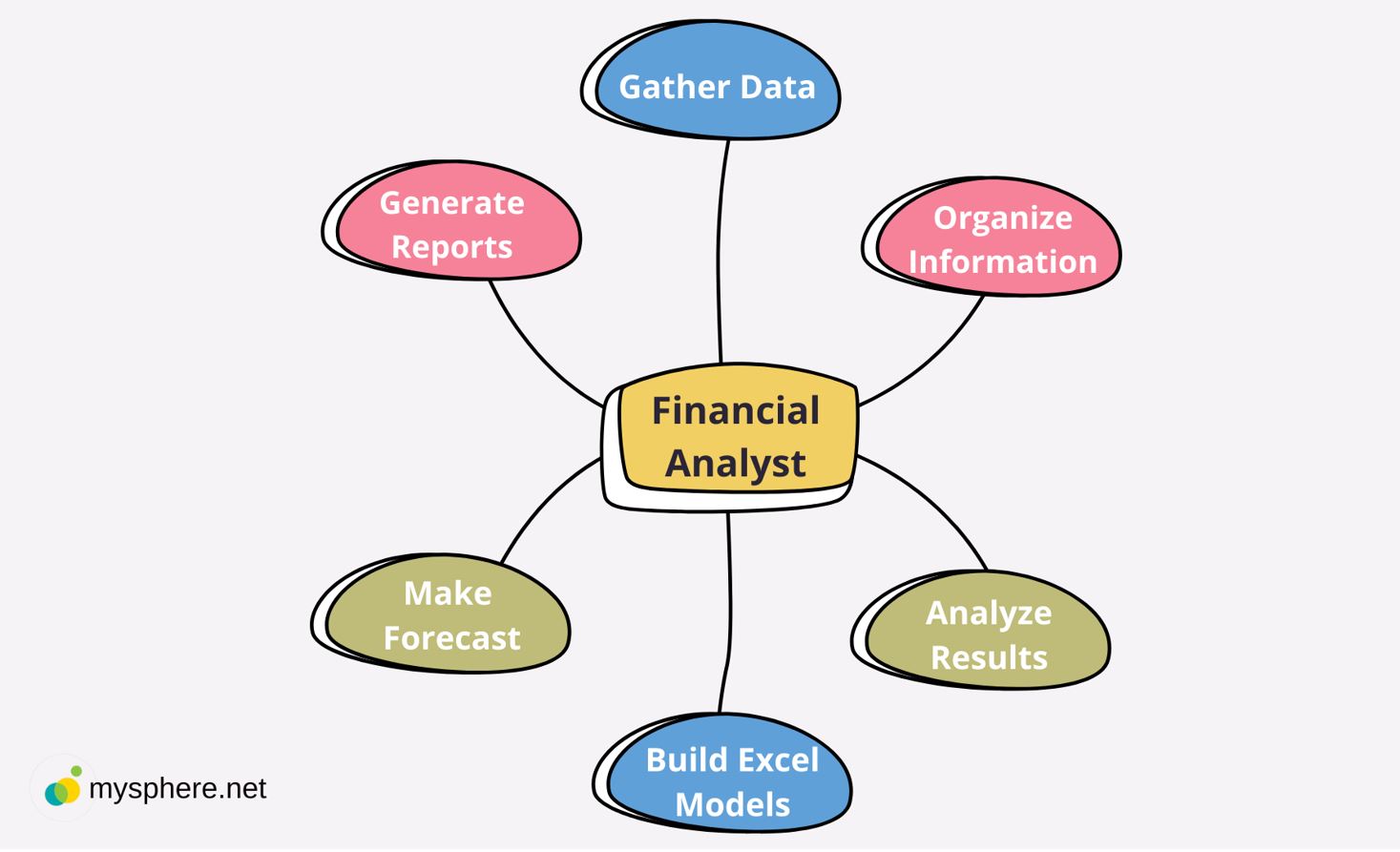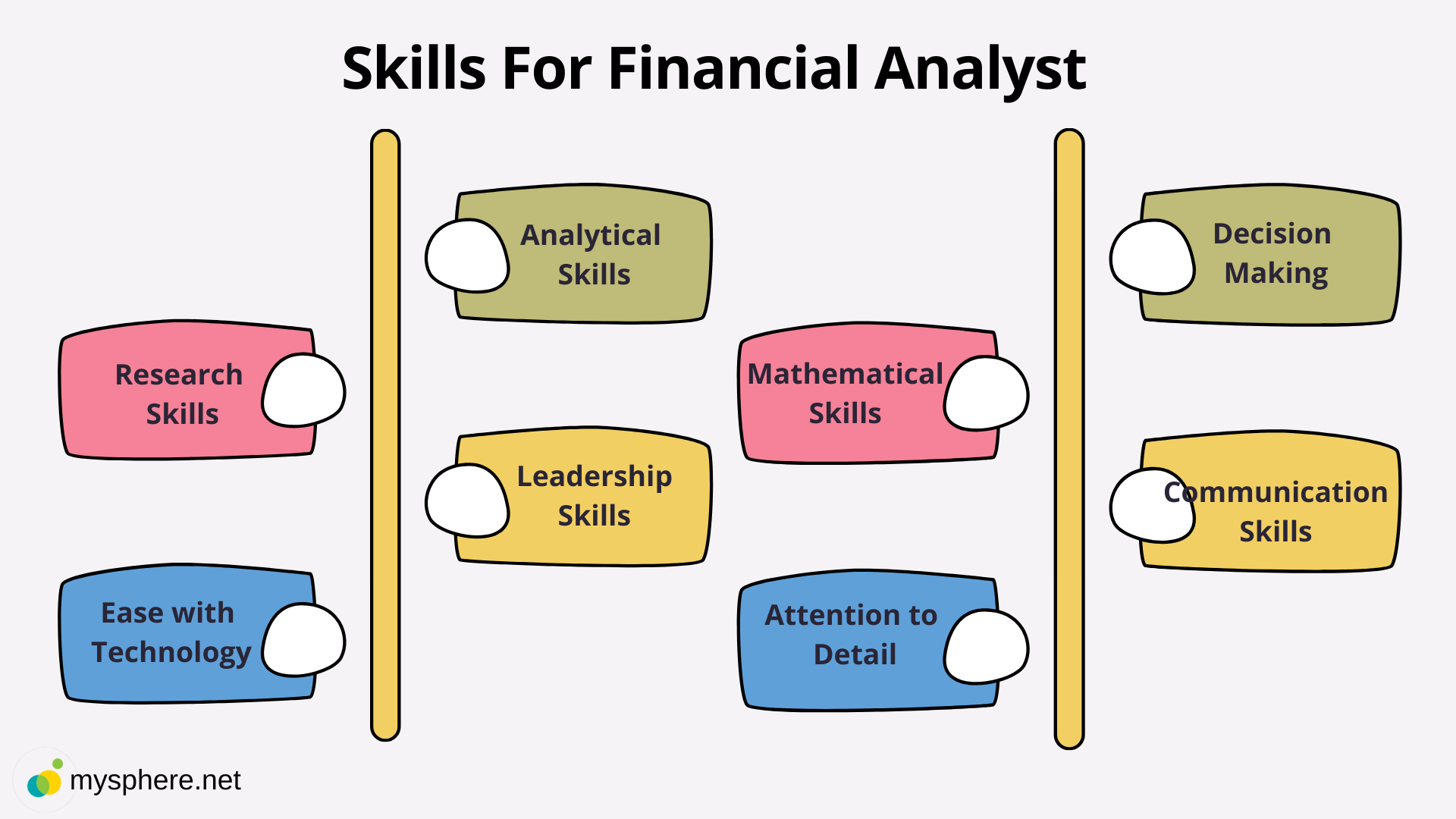Do you have a knack for numbers? Do you find joy in observing trends? If your answer is yes, then a career in the finance industry may be worth considering. One of the most sought after jobs in the financial sector is that of the analyst. The primary role of this profession is to analyse the data to identify opportunities or assess outcomes for business decisions. A financial analyst can decipher the organisation’s financial condition and help make informed decisions for future expenses and investments.
If the finance industry excites you, read on to know more about what you can do to get a headstart into this industry.
What does a financial analyst do?
Numbers, numbers and more numbers!
Is it only working with numbers and data?
Financial analysts analyse financial data. They communicate the findings to company management, which help companies make critical business decisions, monitor expenses, cash flow, and assets, raise capital for business expansion, forecast profit or loss scenarios, and recommend how business operations can be streamlined.
A financial analyst is responsible for generating insights and recommendations based on the numbers examined to improve business operations. Now you must be wondering what kinds of recommendations are these: ways to cut costs, possibilities to grow revenue, how to become more efficient in finance operations and much more.

While junior analysts tend to do a lot of data gathering, spreadsheet maintenance, and craft impressive presentations, getting data ready in the presentable format, more senior analysts tend to spend time developing recommendations and communicating findings with company management and investors.
Analysts are expected to do a lot of reading. They need to be updated on the financial news. Analysts tend to follow publications and financial websites such as The Wall Street Journal, The Financial Times, and The Economist. What does a typical day look like for a financial analyst? To get more insights, click on A day in the life of a financial analyst.
How to make a career in finance?
The finance industry offers a diverse range of career options: investment banking, corporate finance, public accounting, portfolio management, and financial planning. Someone who wants to make a successful career in the finance industry should first know where to start.
To begin with, try to get an answer from yourself if you are really interested in finance to make a career in the finance industry. Are you keen to know more about the financial analyst career path and what kind of opportunities exist? Are you someone who enjoys finance-related discussions at leisure time only?
So how do you decide how deep is your interest in this industry?
Of course, you have resources at your fingertips to gain an understanding of what the field looks like, eligibility, available courses, scope in this industry and much more that you would ask Google. To help you explore and make your research easier, here are a bunch of resources for beginners in finance.
However, the first-hand experience can impart those insights that no online resource can provide. Here we suggest that one should consider enrolling in a short term finance course. By the end of this course, you would be in a better position to decide whether this is where you are inclined to and it will also give you the confidence of making an informed decision. Where can you look for these online courses? Our experts have curated some of the best online courses that may help you if you plan to explore this field further.
What is the education path for a career in finance?
Assuming you wish to pursue a career in finance, what would you do next? The industry has many opportunities in the public, corporate and personal finance sectors.
- You can shortlist 2-3 finance job profiles from the industry and you may get in touch with working professionals and have your queries answered. The goal here is to narrow down 2-3 job roles which will help in shortlisting the degree courses to pursue.
- At the undergraduate level, you can either take a specialised finance course (BFIA, BFM, etc.) or a more general course, such as B.Com or BBA. Undergraduate students considering making a career in the finance industry should take business, economics, accounting and statistics courses. One can also consider other majors, including accounting and math, and even engineering and biology, if one has an interest in those industries.
- The competition is too high and undergraduate or advanced degrees are too common to compete for financial analyst positions. While any degree can lead to this career, these certification courses will provide you with the necessary knowledge of financial concepts right from the start, resulting in a better foundation.
- At the postgraduate level, you can either go for a specialised Master’s in Finance (wealth management roles) or MBA in Finance (roles such as Investment Banking, Corporate Finance). You can also enrol into certifications in finance to enhance your skill-set. Some courses which bring you credibility to break into this field are Chartered Financial Analyst (CFA), Certified Financial Planner (CFP), Financial Risk Manager(FRM), etc.
What are the skills required for a Financial Analyst?
Many financial roles require different skill sets. It is important to select one that matches your long-term goals and career aspirations. If your preference is in statistics, you may excel in public accounting. You could be an excellent financial advisor if you are known for your interpersonal skills.
Now talking about skills, the financial analyst profession requires strong quantitative skills, problem-solving skills and logical thinking. Along with this, excellent communication skills are essential to put across their findings to other decision-makers. Financial analysts do not just examine data, but they also have to present their findings to their different stakeholders clearly and concisely.
It is an ideal profession for someone who enjoys challenging tasks and identifying trends in data and figures in order to make informed decisions.

What is the job outlook of a Financial Analyst?
Though the field of financial analysis is highly competitive, job prospect-wise, the outlook is good. According to the latest Bureau of Labor Statistics (BLS) report, the profession shall grow about 6% in the decade 2018-28. The BLS notes:
“Demand for financial analysts tends to grow with overall economic activity. Financial analysts will be needed to evaluate investment opportunities when new businesses are established or existing businesses expand. In addition, emerging markets throughout the world are providing new investment opportunities, which require expertise in geographic regions where those markets are located.”
The career of a financial analyst requires hard work, preparation which makes it rigorous. This rigour brings a rewarding experience with it. You get to be an active part of the business landscape and your opinions hold an important value for the company’s financial course of action.
Head on to our financial analyst career page for more comprehensive information which may help you make an informed choice.

